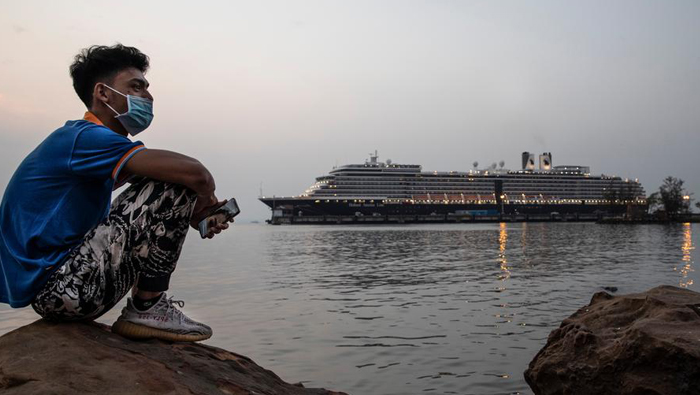
Siem Reap (Cambodia): It's been two months since Horn Bo took passengers to Angkor Wat. Like many other Cambodians, the tuk-tuk driver largely depends on tourism for his livelihood. Since the outbreak of the coronavirus pandemic in the Southeast Asian country, foreign tourists no longer make it to Cambodia.
"Before the outbreak, I was carrying foreign passengers every day. Now I feel lucky if I take some local passengers to the market. I almost don't earn anything anymore," Bo told DW.
Cambodia's economy has taken a big hit due to the coronavirus pandemic, largely because of a temporary ban on international travel.
Last year, the Southeast Asian nation, which has so far recorded only 125 coronavirus infections, welcomed some 6.6 million foreign tourists. About 2.2 million of these tourists visited the Angkor Archeological Park, which is a UNESCO World Heritage Site. For a long time, the centuries-old temple complex has remained the country's most important tourist attraction.
At Angkor, the temples are now only visited by Cambodians and a few foreigners, who live in the country.
"Things changed in March. Suddenly there was a travel ban on people from some countries. The tourists in Cambodia got scared. They stayed in their hotel and left the country as soon as they could," Bo said.
Rising unemployment
According to Oxford Economics, a global economic advisory firm, around 25 per cent of Cambodia's economy depends on tourism and travel. A research by the Organisation for Economic Cooperation and Development (OECD) shows that tourism directly accounted for 13.6 per cent of all the jobs in Cambodia in 2017. Last year, Cambodia earned around $4.92 billion (€4.42 billion) through tourism.
Amid the coronavirus pandemic, the government is offering citizens a monthly allowance of $40 (€36) – far less than the $150 to $300 people associated with the tourism industry normally earned before COVID-19. Applying for the allowance is also a complicated and frustrating procedure.
Khen Srey Khouch has been working in Siem Reap for the past 15 years. Until recently it was easy to find a job in one of the city's many tourism establishments, she told DW. "But there's nothing available anymore. All jobs are gone."
In April, Khouch, the mother of two teenage daughters, lost her job as a cashier in a big hotel. "The manager told us they were suspending hotel operations because there were no tourists. I used to earn around $200 per month. Now I get nothing; not even the $40 allowance the government promised us."
Short-term economic recovery
Experts say it will take years for Cambodia's tourism industry to get back on its feet. David Goodger, a tourism expert at Oxford Economics, told DW that the first recovery is likely to happen in the second half of the current year, but it will be a gradual process.
"Domestic travel should surpass 2019 levels by 2022, but domestic demand accounts for under one-quarter of demand in Cambodia and Thailand. International travel could regain 2019 levels by 2023 or 2024 with demand from short-haul markets returning first," Goodger said.
The expert is of the view that the Cambodian government needs to implement policies to revive the tourism industry, but such policies can also be expensive. "Recovery process can be aided by increasing market support for domestic and short-haul travel, which will return soon. This will not enable a full recovery, but should accelerate some growth," he said, adding that marketing messages to promote safe and hygienic travel will be helpful.
"I now grow vegetables and try to save as much money as I can," Khouch said. "I will wait for the pandemic to be over, but I will probably be paying my debts for many years."